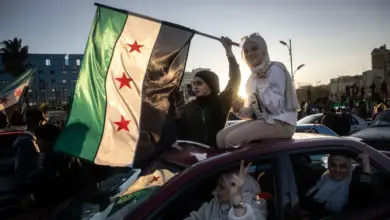
Disputes over controversial articles have raised doubts whether members of the assembly drafting Egypt's new constitution will have the document ready by a 12 December, after which it is to be put to a referendum, officials say.
The constitution is a cornerstone in Egypt's democratic transition after the uprising that ousted Hosni Mubarak last year. Without it, the country cannot hold elections to replace a parliament that a court declared void in June.
Pressure is mounting on the 100-member assembly to finish before the deadline. But bickering between Islamists and liberals over subjects such as the role of Islam in politics, civic freedoms and women's rights has delayed voting on individual articles in the charter.
"We are in the final meters of the marathon," said Mohamed al-Azhary, an ultra-conservative Salafi member who took part in the meeting. "Consensus between political factions has taken a long time and hindered the process."
Possible scenarios if the assembly fails to meet its deadline are vague and pressure will be on Islamist President Mohamed Morsy to use his legislative powers to find a way out.
"We are all responsible for creating consensus on a constitution that is appropriate for Egypt and is awaited by the Egyptian people in the next 30 days without delays," said Mohamed al-Beltagy, a leading figure in the Muslim Brotherhood's Freedom and Justice Party and a member of the assembly.
Struggling to overcome disputes, Morsy has met with party leaders and influential politicians from both Islamist and liberal camps to try to broker consensus over the document.
Restrictive Islamic clause dropped
Assembly members met late on Tuesday and agreed to cancel a disputed article that some aspects of women's rights including marriage and inheritance should be decided according to Sharia (Islamic law), and they modified others.
They aim to hold final discussions next week and then vote on the articles by mid-November, before the document is submitted to a referendum for national approval.
Drafts of the constitution drawn up by the assembly so far indicate it will have more Islamic references than the previous constitution, worrying more liberal-minded Egyptians and Christians, who make up about a tenth of the nation of 83 million. They fear the imposition of social restrictions.
An important article stating that "the principles of Sharia" are the main source of legislation has until now remained unchanged from the old constitution. But a new article seeks to spell out what those principles are in Islamic terms.
However, that is not enough for many hardline Salafi Muslims who want an unequivocal call to implement Sharia rather than wording they say liberals will use to water down the meaning.
Egypt's new Coptic Orthodox pope said on Monday that the constitution must be inclusive and the church would oppose any text that favored only one part of the Muslim-majority nation.
Some assembly members said the committee assigned to complete the final phrasing of articles had changed the content of their work and this wasted considerable time.
But this appeared to be a procedural rather than ideological dispute, since the committee members are composed of both Islamists and liberals.




